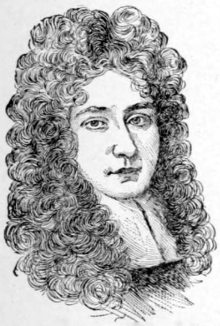| | | | | | | | | | | | Adam Winthrop
(1548–1623) | | | | | | |
|
| | | | | | | | | | | | | | | | | | | | | | | |
| | | | |
| | | | | | Roger Dudley
(d. 1580s) | | | | John Winthrop
(1588–1649) | | Anne Winthrop
(1585–1618) | | Thomas Fones
(1573–1629) |
| |
| | | | | | | | | | | | | | | | | | | | | | | | | | | | |
| | | | | | | |
| | | | | | Thomas Dudley
(1576–1653) | | | | John Winthrop the Younger
(1606–1676) | | Henry Winthrop
(1608–1630) | | Elizabeth Fones
(1610–c. 1673) | |
|
| | | | | | | | | | | | | | | | | | | | | | | | | | |
| | | | | | | | | | |
Simon Bradstreet
(1603–1697) | | Anne Dudley
(1612–1672) | | Joseph Dudley
(1647–1720) | | Wait Still Winthrop
(1642–1717) | | Fitz-John Winthrop
(1638–1707) | | |
|
| | | | | | | | | | | | | | | | | | | | | | | | | | |
| | | | | |
| | | | Paul Dudley
(1675–1751) | | Ann Dudley
(1684–1776) | | John Winthrop, F.R.S.
(1681–1747) | | | | | | | | |
| |
| | | | | | | | | | | | | | | | | | | | | | | | |
|
| | | | | | | | | | John Still Winthrop
(1720–1776) | | | | | | | | | | |
|
| | | | | | | | | | | | | | | | | | | | | | | | | | |
| | | | | |
| | | | | | | | Thomas L. Winthrop
(1760–1841) | | Francis Bayard Winthrop
(1754–1817) | | | | | | | | |
|
| | | | | | | | | | | | | | | | | | | | | | | | | | |
| | | | | | | | |
| | | | | | | | Robert Charles Winthrop
(1809–1894) | | Thomas Charles Winthrop
(1797–1873) | | | | | | Francis B. Winthrop Jr.
(1787–1841) |
|
| | | | | | | | | | | | | | | | | | | | | | | | | | |
|
| | | | | | | | Robert C. Winthrop Jr.
(1834–1905) | | Robert Winthrop
(1833–1892) | | Katherine Wilson Taylor
(1839–1925) | | Theodore Winthrop
(1828–1861) |
| |
| | | | | | | | | | | | | | | | | | | | | | | | | | | |
| | | | | |
| | | | James Grant Forbes
(1879–1955) | | Margaret Tyndal Winthrop
(1880–1970) | | Beekman Winthrop
(1874–1940) | | Katherine Taylor Winthrop
(1866–1943) | | Hamilton F. Kean
(1862–1941) |
| | | |
| | | | | | | | | | | | | | | | | | | | | | | | | |
|
| | Richard Kerry
(1915-2000) | | Rosemary Forbes
(1913–2002) | | | | | | | | | | Robert Kean
(1893–1980) | | |
| |
| | | | | | | | | | | | | | | | | | | | | | | | | | | |
| | | | | |
| | John Kerry
(1943–) | | Cameron Kerry
(1950-) | | | | | | | | | | Thomas Kean
(1935–) | | |
|
| | | | | | | | | | | | | | | | | | | | | | | | |
|
| | | | | | | | | | | | | | | | | | Thomas Kean Jr.
(1968–) | | |
|
